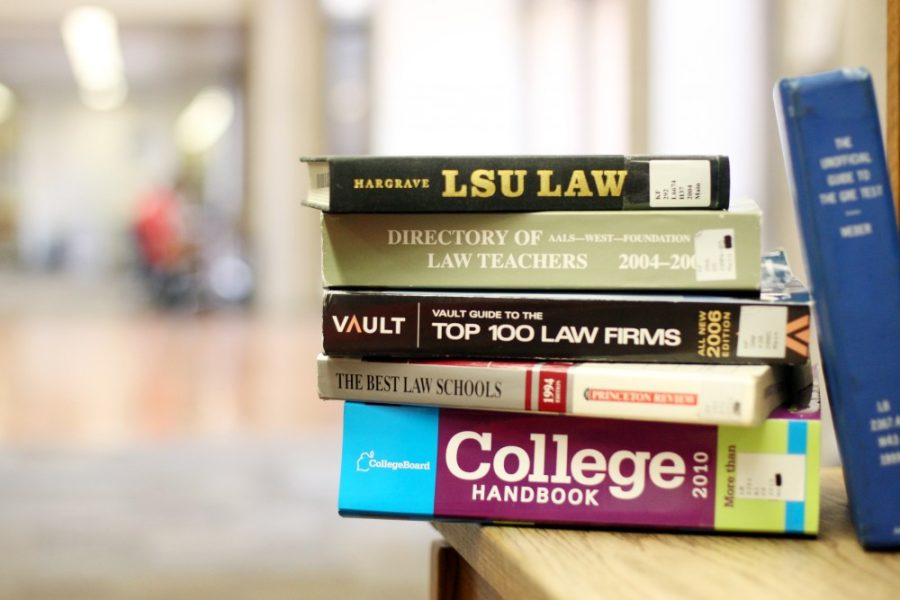As you begin to register for classes for next semester, I am sure the cost of tuition and textbooks are on your mind. Textbooks are expensive. If you are tired of trekking down to the basement of the University of Arizona Bookstore to spend a couple of hundred dollars every semester, here are some tips for you:
1. Wait to buy your textbooks
When your professors begin posting information to their D2L pages next semester, your first move should not be to go out and buy the required textbooks and reading material. Wait until the first week of classes before thinking about purchasing textbooks. In a few of my courses, my professors have loosened their required textbook policy after the first class or provided us the necessary readings.
2. Cost-benefit analysis
While this could be heretical, I believe you should always do a true cost-benefit analysis before purchasing any textbooks. I start by examining the impact not having a textbook could have on my grade and my learning. For example, if a professor has required readings from a textbook but this material will not appear on tests or in homework assignments, then not having a textbook will not impact my grade potential in the class. Another aspect to consider is your learning style. Some students prefer to read textbooks for additional clarification of lecture material, others feel more comfortable attending office hours. If I judge that a textbook is not truly required to succeed in a course, I do not purchase one.
3. The library!
After the first week of classes, if you decide you would like to purchase the course textbook, double-check the UA Library before you buy it. The UA Library has online access to many textbooks free for students. Additionally, the UA Library has many physical books that courses use as textbooks or required reading. If you find UA does not have the material you need, you can always file an inter-library loan request and potentially have the book shipped to Tucson just for you. The UA Library does not always have the most up to date editions of books, but oftentimes a previous edition of a textbook or required reading will work just fine for your course and could save you a good deal of money.
RELATED: Here’s three places on campus to rent equipment instead of going broke
4. Hand-me-downs
If you have struck out at the UA Library, there are other resources to turn to on campus. I always start by asking my friends about their textbook or reading collections. Once a friend lent me a $300 neuroscience textbook for the semester for just a cup of coffee. In addition to your friends, many UA departments have textbook libraries. The Neuroscience and Cognitive Science department have over 50 textbooks that students can rent for the semester for free. These books, donated by previous students, encompass a number of our core neuroscience courses but also a plethora of electives. It is always worth a shot to ask around about a book before purchasing.
5. Rent online, do not buy
If you are still in need of a book, the cheapest option is not the UA Bookstore but rather an online rental of either an eBook or physical copy. Renting is oftentimes much more affordable than buying a textbook and most students will not consult textbooks after a course concludes. I once rented a textbook using Amazon for around $10 for the semester. The book normally costs over $100. Oftentimes, eBook rentals are the fraction of the cost of purchasing the textbook outright. If you still enjoy the feel of a physical book, you can always print out eBooks or rent physical copies to be shipped to your door.
6. Textbook Scholarships
After all of these steps, your textbook bill could still run into the hundreds of dollars, especially for those courses with required purchases of online homework assignments. If that is the case, UA may have some scholarships for you. The UA Bookstore provides $10,000 in textbook scholarships annually alone. Additionally, many colleges and departments have extra money set aside to support students with financial need. It never hurts to reach out to your advisors and ask about additional resources.
To conclude: When you are already spending tens of thousands of dollars every year on tuition, a couple of hundred dollars more on textbooks every semester can seem immense, especially when some professors ignore their required textbooks altogether. I hope these tips help make your college experience slightly more affordable.
Follow the Daily Wildcat on Twitter









